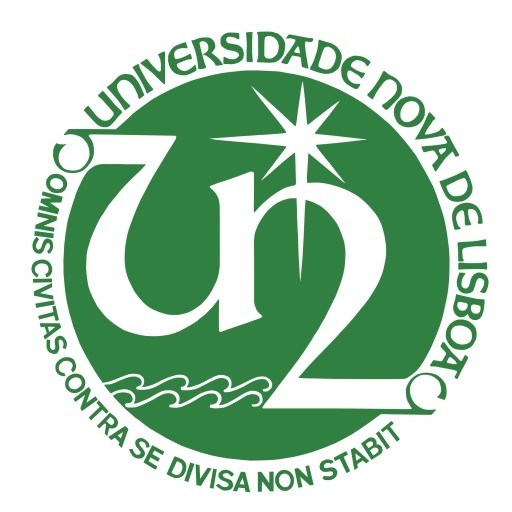Photos of university / #uporto
The Bachelor's Degree in Civil Engineering at the University of Porto offers a comprehensive educational experience designed to prepare students for a diverse range of careers in the construction industry and infrastructure development. This program provides students with foundational knowledge in mathematics, physics, and geology, forming the core principles necessary for understanding the design, construction, and maintenance of civil structures and transport systems. Throughout the course, students engage in both theoretical and practical learning, including computer-aided design, structural analysis, materials engineering, and sustainable development practices. The curriculum integrates projects, laboratory work, and internships to develop technical skills, critical thinking, and problem-solving abilities essential for addressing complex engineering challenges. Emphasizing sustainability and environmental responsibility, the program also covers topics such as hydraulic engineering, urban planning, and construction management, equipping graduates to contribute to society’s infrastructure needs responsibly. Students benefit from the university’s modern laboratories, workshops, and partnerships with industry stakeholders, providing real-world experience and networking opportunities. The program aims to foster innovation, teamwork, and effective communication skills, preparing graduates to work in multidisciplinary teams across various sectors, including public and private construction, consulting, and research. Additionally, the curriculum is regularly updated to reflect advances in technology, safety standards, and sustainable practices in civil engineering. Graduates of this program are well-positioned to pursue professional certification, postgraduate studies, or entry into the civil engineering workforce, contributing to the development and maintenance of safe, efficient, and sustainable infrastructure systems. The University of Porto's Department of Civil Engineering is committed to academic excellence, ensuring students receive a rigorous education grounded in the latest industry standards and research.
The Civil Engineering undergraduate program at the University of Porto offers a comprehensive curriculum designed to equip students with the fundamental knowledge and practical skills necessary to excel in the diverse field of civil engineering. Throughout the course, students are introduced to core disciplines such as structural analysis and design, geotechnical engineering, transportation engineering, water resources management, and construction management. The program emphasizes a solid foundation in mathematics, physics, and computer-aided design, enabling students to develop innovative solutions for complex infrastructure projects.
In the first years, students focus on acquiring essential theoretical knowledge through courses in mathematics, physics, mechanics, and material sciences. As the program progresses, students delve into specialized subjects such as structural analysis, steel and concrete design, transportation systems, and environmental engineering. The curriculum is complemented by practical laboratories and workshops, providing hands-on experience in construction techniques, materials testing, and project management. Additionally, students participate in design projects, fostering teamwork and problem-solving skills vital for real-world civil engineering challenges.
A distinctive feature of the program is its strong emphasis on sustainability and environmental responsibility, preparing students to design infrastructure that minimizes environmental impact and promotes sustainable development. The program also incorporates modern technologies, including the use of software for structural analysis, geographic information systems (GIS), and Building Information Modeling (BIM), positioning students at the forefront of technological advances in civil engineering.
Throughout their studies, students are encouraged to engage in internships and industry collaborations, facilitating practical exposure and networking opportunities with professionals from leading engineering firms and construction companies. The program aims to produce graduates who are not only technically proficient but also capable of leading projects, managing teams, and communicating effectively with stakeholders.
By the end of the program, students will have developed the technical expertise, ethical awareness, and project management skills required to pursue careers in designing, constructing, and maintaining infrastructure systems that meet societal needs while adhering to safety standards and sustainability principles. Graduates are well-prepared to enter the workforce or to continue their education through postgraduate studies in specialized areas of civil engineering.
Program requirements for the Bachelor’s Degree in Civil Engineering at the University of Porto include a combination of academic prerequisites, language proficiency, and enrollment procedures. Applicants must have completed secondary education or an equivalent qualification recognized by Portuguese authorities. The program typically requires a solid foundation in mathematics, physics, and chemistry, reflecting the technical nature of civil engineering. Candidates should demonstrate proficiency in English, often through standardized tests such as TOEFL or IELTS, as the program may include components delivered in English or require reading and comprehension of technical materials in English. Additionally, students are expected to meet the specific entrance criteria outlined by the university’s admissions office, which may involve passing entrance exams or assessments in relevant subjects. International students must provide validation of their previous education credentials and may need to submit additional documentation such as passport copies and proof of financial means. The university prefers candidates with strong analytical and problem-solving skills, and consideration is given to academic performance in related subjects. Once admitted, students are required to fulfill the program’s course requirements, which encompass core civil engineering modules, practical laboratory work, and project-based learning. Students are also encouraged to participate in internships and practical training sessions to gain industry experience. The completion of the program involves successfully passing all designated courses, fulfilling semester and annual academic progress criteria, and completing a final project or thesis. Continued enrollment mandates adherence to university regulations and academic standards, including attendance policies, academic integrity, and ongoing assessments. The program aims to prepare graduates for careers in construction, infrastructure, environmental management, and related fields, emphasizing both theoretical knowledge and practical competence necessary for professional practice in civil engineering.
The Civil Engineering program at the University of Porto offers a range of financing options to support students throughout their studies. Tuition fees are determined annually and vary depending on the student's nationality and academic level. For undergraduate students, domestic students benefit from generally lower tuition fees compared to international students. The university provides transparent information on tuition costs, which can be paid per academic year or semester, allowing for flexible funding arrangements. In addition to tuition fees, students should consider additional expenses such as books, materials, and living costs, which vary depending on the student's lifestyle and accommodation choices.
Financial aid options include government scholarships, which may be available to Portuguese residents and EU citizens based on academic merit or financial need. The Portuguese government offers several scholarship programs aimed at supporting students in STEM fields, including engineering disciplines, with eligibility criteria based on academic performance and family income. The University of Porto also offers its own scholarships, which are awarded annually to outstanding students, and may cover partial or full tuition fees along with stipends to assist with living expenses.
Students are encouraged to apply early for funding opportunities, as competition can be high. External scholarship providers, such as international organizations and private foundations, also offer funding for international students wishing to study engineering at the university. Internships and cooperative education programs can provide additional financial support and practical experience, often leading to paid positions within local or national construction companies and engineering firms.
Furthermore, the university provides information on student loans and work-study opportunities, enabling students to finance their education through part-time employment on campus or within affiliated companies. Many students rely on a combination of these funding sources to support their studies fully. The university's financial aid office offers guidance and assistance with application procedures, ensuring students are aware of all available options to fund their Civil Engineering program. Overall, students have access to various financial resources to support their academic journey at the University of Porto, making higher education in Civil Engineering accessible and manageable for a broad range of applicants.
The Bachelor’s Degree in Civil Engineering at the University of Porto is a comprehensive program designed to equip students with the foundational knowledge and practical skills required for a successful career in the field of civil engineering. This program emphasizes a solid understanding of engineering principles, mathematics, physics, and materials science, coupled with hands-on experience through laboratory work, project-based learning, and internships. Students will explore various aspects of civil engineering, including structural analysis and design, geotechnical engineering, transportation systems, water resources management, environmental engineering, and construction practices. The curriculum is structured to foster critical thinking, problem-solving abilities, and innovation, preparing graduates to address the challenges of modern infrastructure development sustainably and efficiently.
Throughout the program, students have access to state-of-the-art laboratories and research facilities, allowing them to engage in practical experiments and real-world project simulations. The program also encourages interdisciplinary collaboration, as civil engineering often intersects with fields such as environmental science, urban planning, and computer science. Emphasis is placed on current technological advancements, including Building Information Modeling (BIM), sustainable construction methods, and the use of advanced software tools for design and analysis. The faculty comprises experienced lecturers and industry experts committed to providing quality education and mentorship.
The degree aims to prepare students not only for immediate employment in engineering consultancies, construction companies, or public agencies but also to pursue postgraduate studies. The program maintains strong links with industry through partnerships with engineering firms and municipal bodies, facilitating internships and collaborative projects. Upon graduation, students are equipped to contribute to infrastructure projects that promote economic development and societal well-being, with a keen focus on environmental sustainability.
The University of Porto's Civil Engineering program is accredited by relevant educational authorities, ensuring that graduates meet national and international standards within the engineering profession. Graduates are eligible for registration with professional engineering organizations, which enhances their career prospects locally and abroad. The program fosters a commitment to lifelong learning, encouraging students to stay informed about emerging technologies and advancements in civil engineering through continuous professional development. Overall, the Bachelor’s Degree in Civil Engineering at the University of Porto offers a rigorous and dynamic education aimed at producing competent engineers capable of making a positive impact on society through innovative and sustainable engineering solutions.


